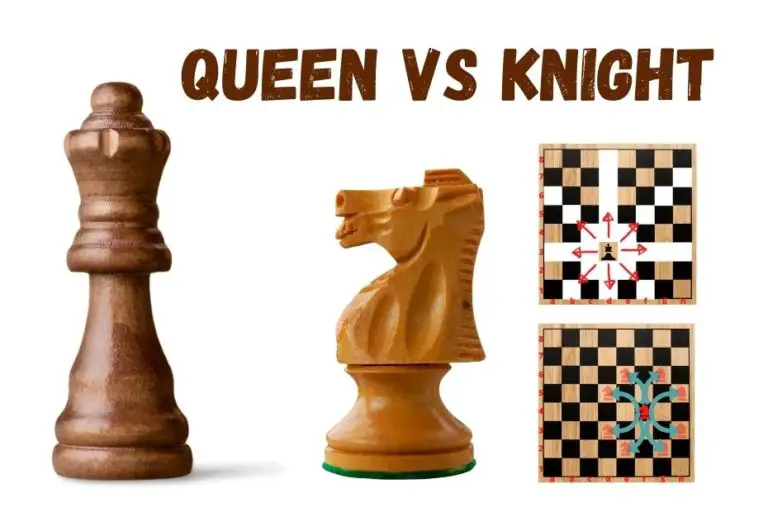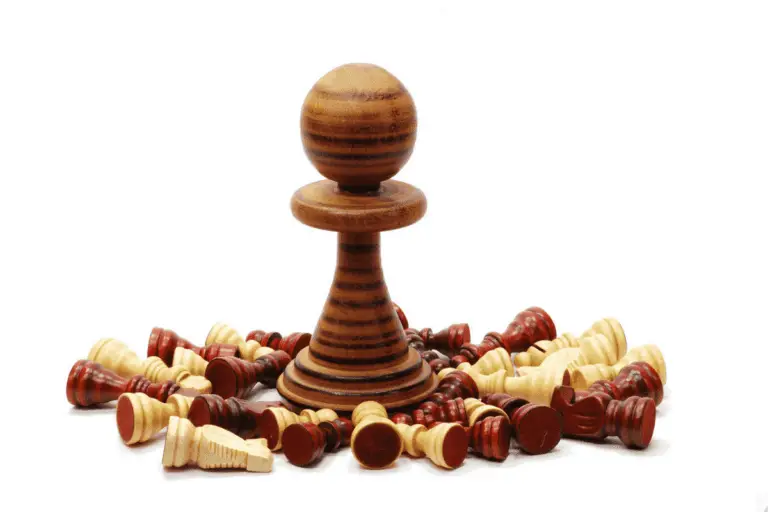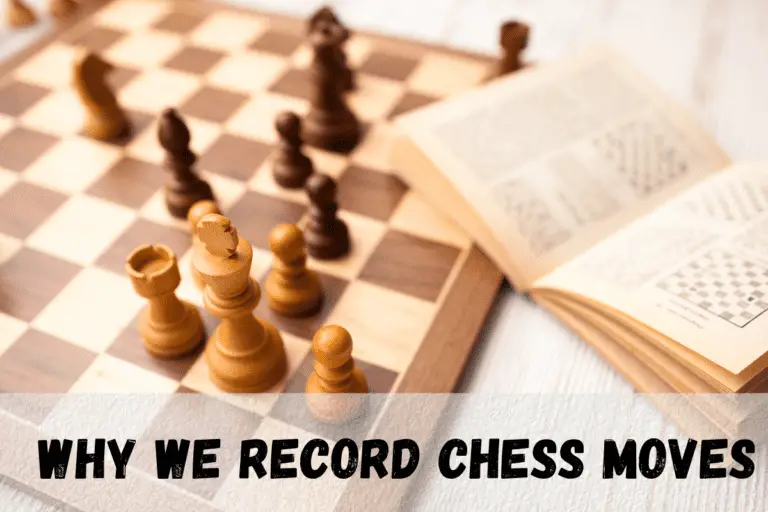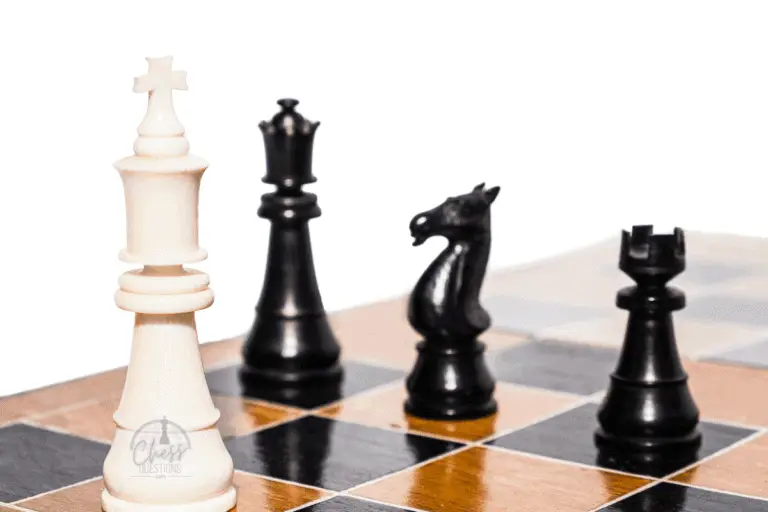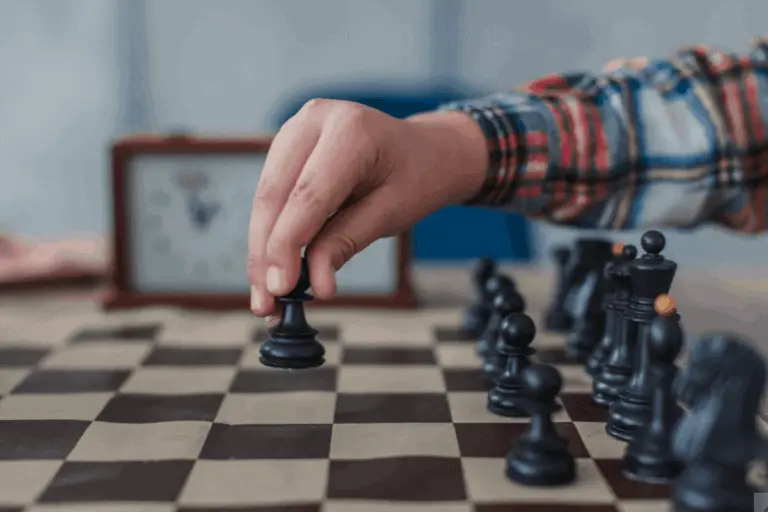Can Chess Players Talk to Each Other
⭐⭐⭐ Take 5 minutes to read and improve your chess game ➡️ : This article was first published on, and is Copyright of Chessquestions.com
Did you know that there are rules for talking to your opponent during a chess game? Here, we’ll explore some of the dos and don’ts of chess etiquette. For those who have never played or been in an official tournament before, it might be hard to know what is appropriate to say when you’re playing against someone else as opposed to chess with friends. This blog post will help answer any questions about how to talk while playing with someone else as well as things that should not be said during a game.
Chess players can talk to each other during a chess game but in competitive chess, the etiquette is to not disturb a player’s thought process, which conversation certainly will. Exchanging a few words prior and post-game is acceptable.
So what can and can’t be said between players during a game? Let’s find out
Official FIDE rules on Talking in Chess
A search of the FIDE Laws of Chess throws up no results for ‘talk’ or ‘talking’, so one may take it that talking is very much permitted, or at least, not expressly prohibited, however, in an indirect view, disturbances are considered.
Article 13, The Role of the Arbiter
13.2 The arbiter shall act in the best interest of the competition. He should ensure that a good playing environment is maintained and that the players are not disturbed. He shall supervise the progress of the competition.
FIDE Laws of Chess
So the perception of disturbance is at the discretion of the arbiter, and should there be any conversation that is either disturbing or complained about by one party, there are measures that can be taken according to the rules of chess.
The best thing to do is to just be quiet.
Chess Tournaments Will Have Their Own Rules about Talking
Whilst the FIDE laws of Chess cover all the rules of the game of chess, tournaments can have their own specific rules for a single tournament and conditions.
Some tournaments will expel talking over the board for any reason except draw and resignation options.
Other tournaments may leave talking open to the discretion of the room arbiters.
Either way, it is still better not to talk at all – I certainly never feel like uttering any words whilst concentrating, even when playing informal games with friends.
If You Do Talk, Talk Quietly
You can imagine at a big chess tournament in an echoey hall, there could be fifty games and 100 professional chess players all with the potential of talking. You can imagine how loud the combined effort would be, and this would be disturbing to not just those closest to you on adjacent seats but also everyone else in the hall and playing in the tournament.
It is best to simply talk as little as possible, not at all is better and if compelled to do so, speak very quietly.
This goes for words that are exchange both before and after a game or match has completed. There will be many other games going on around you at various stages of completion and player in the deepest of thought and concentration formulating their next move and tactics.
What About Saying ‘Check’
It is most common for friendly and non-competitive games between friends for the announcement of ‘check’ to be made at the point the King has been placed under direct attack and has to move or be defended, however, do you really have to say “check” in chess?
Saying ‘check’ in a game of chess is not required in official chess rules and is never used in formal, tournaments because the position will not go unnoticed. ‘Check’ is still said in friendly games between friends, mainly because it is often not noticed by less skilled players.
Therefore it is one less thing a player needs to talk to another player during a game about. Allow your opponent the opportunity to spot the position and afford the respect that a chess master will already be aware of without the need of the check position being pointed out.
Never Talk About the Game You Are Playing with Your Opponent.
During the game, you should absolutely not talk about the game, the positions, the possibilities, or any other aspect of what is going on, on the board.
This can be construed as gamesmanship and could raise a complaint. As above, you do not need to announce a check and should you wish to offer a draw, you should do so before you hit your clock.
Outside of offering a draw or resignation in a tournament chess game, there is no need to talk during your game.
Talking After Your Game/Match Has Finished is Still Subject to Conditions
As mentioned, you may feel a sense of relief [either way] when your game has finished, but you should be aware of your surroundings and other games still taking place before talking to your opponent.
If there is a chance you could disturb or upset other players, wait until you have left the tournament floor and room before taking up a conversation and talking about the match to either your opponent or anyone else.
Leave the chess board and chess pieces in place.
Talking Could be Viewed as Cheating
If you talk to your opponent in a formal competitive tournament game of chess, you could be accused of cheating.
Cheating in chess is of course unacceptable but extends beyond cheating online with chess engines, to try to disturb your opponent’s concentration by talking to them during the game and affecting their thought processes.
Making unreasonable offers of a draw will be viewed as unsportsmanlike too. perhaps one offence can be let go, but if there are continuous silly draw offers this is talking that is plainly being used to distract your thinking and should be stopped.
If your opponent is disturbing you by talking, and perhaps you have requested they stop but they persist, you should gesture to the arbiter and make the issue known.
What Can an Arbiter do if There is Talking?
Be aware that the maximum penalty for talking in a chess match can be complete expulsion from the event. I am sure this would be in only the most extreme cases, and prior warnings would be issued before it came to this but should be aware of all penalties that an Arbiter can give if a player is in defiance of the rules regarding disturbing behavior.
From Article 13.
13.4 The arbiter can apply one or more of the following penalties:
- a. warning
- b. increasing the remaining time of the opponent
- c. reducing the remaining time of the offending player
- d. declaring the game to be lost
- e. reducing the points scored in the game by the offending party
- f. increasing the points scored in the game by the opponent to the maximum available for that game
- g. expulsion from the event.
You will rarely see strong chess players and chess competitions talking for even offering draws, a gesture of handshake is quite often understood. You may even be accused of bringing chess into disrepute by flouting the etiquette and disturbance rules.
Online Chess Chat
There is the option to chat via a message box when playing online chess, but when playing rapid games, I barely have time to think, let alone read and write conversation. My general experience of these chat boxes with online chess games, is they are just there for players to abuse each other and make fun of mistakes and blunders. I personally leave them off and do not enter into conversation with online opponents.
Summary
Talking whilst playing chess friends in an informal situation and casual game is fine, I am sure you will enjoy much banter and cajoling along the way with various chess positions, but if the game is competitive, there are prizes or official ranking points up for grabs it is next to not talk at all, aside from the pleasantries and necessity.
You’ll even find some chess clubs have strict rules, whilst others will be more relaxed about talking during the game.
Happy Chessing!


